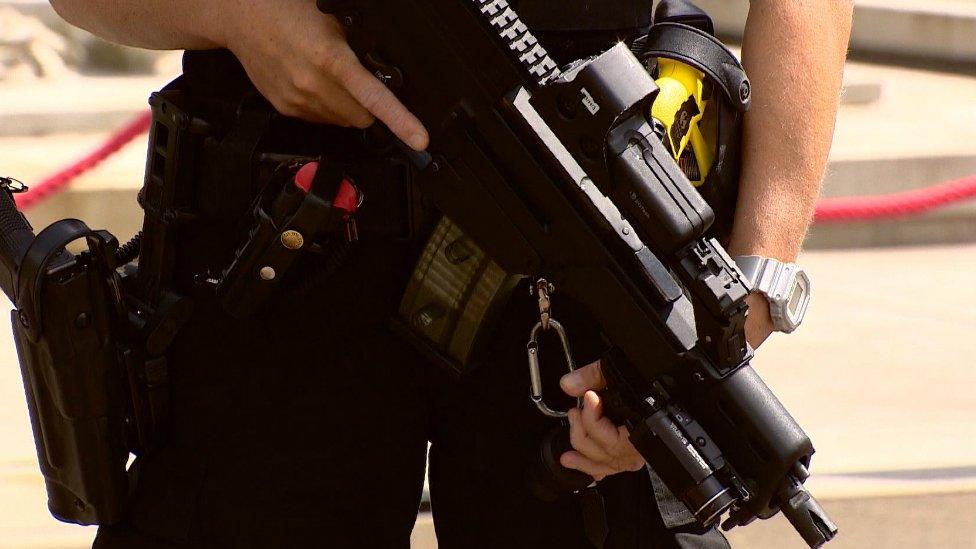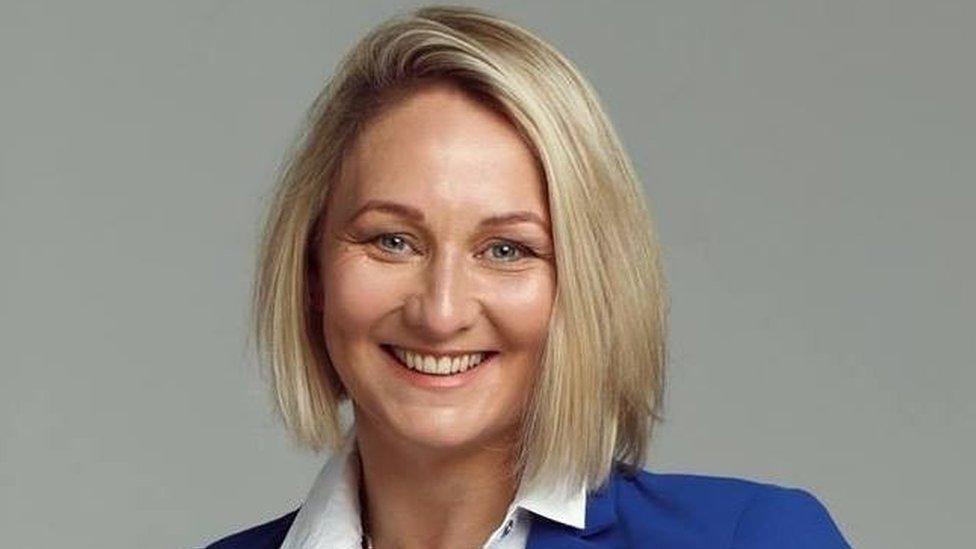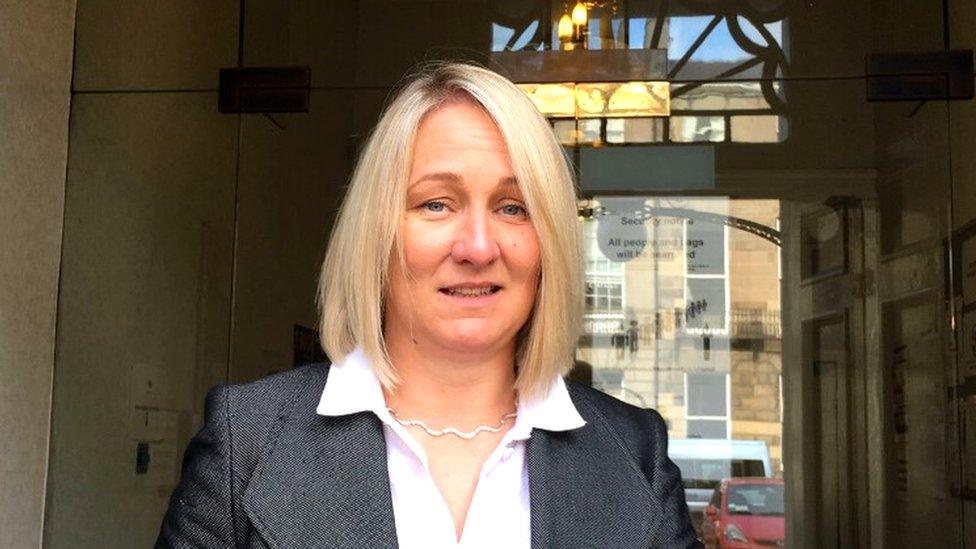Culture in armed policing 'horrific', says officer
- Published

A female firearms officer was told by an unnamed police instructor that women should not do the job because their period affects their temperament, an employment tribunal has heard.
Sgt Rachel Coates told a tribunal probing claims of sexism in Police Scotland that she "found the culture of armed policing to be horrific".
Sgt Coates said her gender "was always going to be a barrier in firearms".
Police Scotland has denied claims it has a culture of sexism.
The tribunal case has been brought by former firearms officer Rhona Malone, who was told by a police inspector that two female officers should not be deployed together when there were men on duty.
Giving evidence, Sgt Coates said she was a firearms officer for eight years but transferred to another role in the force because of her concerns about her treatment in the armed police team.
She said she was "angry and horrified" at the email sent to Ms Malone about pairing female officers, but argued it was part of a wider issue.
Sgt Coates claimed that an unnamed firearms instructor had told her "that women shouldn't be AFOs (Authorised Firearms Officers) because they menstruated and this affected their temperament".
Sgt Coates added that a verbal request for uniform which would allow female firearms officers to go to the toilet without having to remove their gun belt was rejected by a senior officer, who she claims then swore at her and told her she should move to another police department if she was not happy.
Sgt Coates then cited the repeated vandalism of a flyer for a staff association for women in policing that she put on a staff noticeboard as "an insight into the types of challenges women AFOs face".
The tribunal had previously heard how in January 2018, Ms Malone and another female officer were copied into an email from a then temporary Insp Keith Warhurst, who said that for operational reasons he did not want to see two female officers deployed together when there were sufficient male staff on duty.

Rhona Malone claims she was subjected to a series of sexist comments
Insp Warhurst went on to write that other than the obvious differences in physical capacity, this made more sense from a "search, balance of testosterone perspective".
The tribunal heard that the inspector had since acknowledged the email was very badly worded and that he had wanted to ensure that pairings of officers going out together were the strongest possible.
'A boys' club culture'
But two witnesses, one a former police officer and the other a serving officer, said the email was one of a number of incidents where Insp Warhurst's behaviour had concerned them.
Both suggested the experienced officer had sent inappropriate images of topless women to a Whatsapp group of police officers.
Richard Creanor, a former firearms officer, told the tribunal there was "absolutely a boys' club culture" that existed in parts of Police Scotland's armed response unit and also claimed Insp Warhurst had made derogatory comments about women while on duty.
He added: "You have to understand the culture in firearms, they operate within their own rules."
Lawyer Stewart Healey, acting for Police Scotland, suggested to Mr Creanor that he "had it in for Mr Warhurst" and was making up the claims.
Mr Healey added that the inspector denied sending inappropriate images and making derogatory comments, saying that it was "absolutely not true and he would never use those words".
Kit concerns
The tribunal later heard from PC Zara Taylor, a former firearms officer, who said that she had "concerns with the culture in firearms" and specifically how "the kit placed women at a disadvantage".
PC Taylor explained how she took sex discrimination proceedings against Police Scotland with the support of the Scottish Police Federation after her repeated complaints that the police-issue vests, and bullet-proof plates that go inside them, were not suitable for a person of her height.
The police officer said this had put her at a disadvantage to her male colleagues and the case was settled in 2019.
PC Taylor has since left the firearms team which she said was because she was "not confident the sexist culture I had to battle was going to change".
'No place in policing'
In 2018, Police Scotland told the BBC the Rhona Malone email was dealt with immediately and fully investigated.
They said Insp Warhurst fully accepted the wording was unacceptable and he apologised.
Police Scotland's Chief Constable, Iain Livingstone, has previously said any kind of discrimination was deplorable and had no place in policing.
The tribunal is expected to last for two weeks.
Related topics
- Published19 October 2018

- Published11 September 2019

- Published20 November 2020
